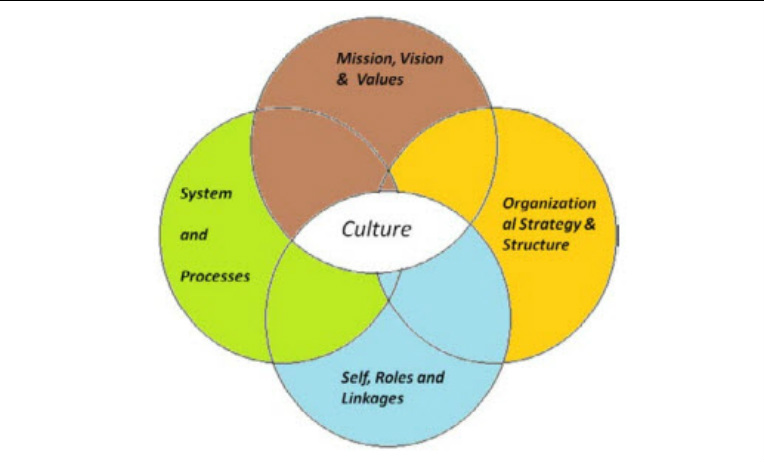Startup Adjectives – A Comprehensive Guide In 2024!
In the dynamic world of startups, a solid company culture and a clear mission statement are indispensable for thriving.
Startup adjectives are words that describe a startup’s unique qualities, such as innovative, agile, scalable, disruptive, and visionary.
This article will delve into the art of developing an impactful company culture and mission statement, enriched with various startup adjectives, helping you articulate your startup’s unique value proposition effectively.
The Significance Of Organizational Culture And Mission Statements:

A robust company culture, shaped by shared values and norms, is indispensable for a startup’s success. It is pivotal in enhancing employee engagement, boosting productivity, and ensuring long-term retention.
This cheerful and unified atmosphere is fundamental for any startup’s overall well-being and expansion. Similarly, a well-crafted mission statement is a powerful tool, succinctly communicating the startup’s purpose, values, and objectives.
It acts as a focal point for the team, injecting inspiration and offering clarity for decision-making. Importantly, it appeals to customers, partners, and investors, clearly articulating the startup’s distinctive value to the market.
A strong culture and a compelling mission statement contribute to the startup’s growth, success, and sustainability.
Attracting Investors With A Vision And Culture:
Today’s investors look beyond just a viable business model. They are drawn to startups with a compelling vision and strong company culture. A well-defined mission statement and positive culture showcase your startup’s potential for long-term success, attracting investors who share your values and vision.
Building Your Company Culture: How To Do:
1. Values And Beliefs:
Start by identifying the core values and beliefs that reflect your startup’s principles and ethics. These values should influence the desired behaviors and attitudes within your team. Ensure that these values are not just words on a page but are integrated into every aspect of your organization, from hiring practices to daily operations.
2. Purpose And Vision:
Clearly articulate your startup’s purpose and long-term vision. This should encompass the problems you aim to solve and the impact you wish to make. Your vision should be ambitious yet achievable, serving as a constant source of motivation and direction for your team.
3. Collaborative Environment:
Encourage a collaborative and inclusive workplace where diversity is celebrated, and open communication is the norm. Create spaces and opportunities for team members to share ideas and feedback, fostering a culture where every voice is heard and valued.
4. Growth Mindset:
Foster an environment that embraces continuous learning, innovation, and adaptation. Encourage your team to view challenges as opportunities for growth and seek ways to improve continuously, personally and professionally.
5. Work-Life Balance:
Prioritize your team’s well-being with initiatives that support a healthy balance between work and personal life. Implement flexible working hours, offer mental health days, and create a supportive environment where employees feel comfortable discussing their needs.
6. Empowerment And Accountability:
Give your team members the freedom to decide for themselves and accept responsibility for their job. This empowerment should be balanced with accountability, ensuring that everyone is responsible for their contributions and understands the impact of their actions on the broader team and company goals.
7. Recognition And Reward:
Regularly recognize and reward the hard work and achievements of your team. Whether through public acknowledgment, promotions, or incentives, showing appreciation for their efforts can significantly boost morale and motivation.
8. Community And Engagement:
Cultivate a sense of community within your startup by organizing team-building activities and social events. This strengthens team members’ relationships and enhances their engagement and loyalty to the company.
Crafting An Effective Mission Statement: Follow This:

1. Conciseness And Inspiration:
Your mission statement should be brief, inspiring, and encapsulate your startup’s purpose and values. It should be memorable and stir excitement. Strive to make it a rallying cry that energizes and unifies your team and a beacon that guides your strategic decisions.
2. Impact Focus:
Emphasize the positive change your startup seeks to create, setting you apart from competitors. Ensure that it reflects the unique benefits and solutions your startup offers, resonating with the needs and expectations of your target market.
3. Stakeholder Alignment:
Ensure your mission resonates with all stakeholders, including customers, employees, and the community. This alignment fosters a shared sense of purpose and commitment, which is essential for building long-term relationships and trust.
4. Authenticity And Clarity:
Use clear and authentic language, avoiding jargon to build trust and credibility. Your mission statement should genuinely reflect your startup’s ethos and ambitions, communicated in an understandable and relatable way to your audience.
5. Evolving Nature:
Treat your mission statement as a dynamic document that evolves with your startup. Be open to revisiting and refining it as your company grows and adapts, ensuring it always aligns with your current vision and market position.
Presenting Your Startup To Investors: Unique Ways:
- Unique Value Proposition: Highlight the unique problem you solve, your market opportunity, and your competitive edge.
- Financial Viability: Show a transparent business model with solid financial projections and a strong market strategy.
- Team and Culture: Showcase your skilled team and the positive culture you’ve built.
- Traction and Milestones: Display your growth metrics, customer success stories, and milestones to demonstrate progress and market validation.
- Investor Alignment: Seek investors who share your values and vision for mutual benefit.
Descriptive Startup Adjectives For Company Culture:

- Agile: Quick and adaptable to change.
- Authentic: Genuine and transparent.
- Collaborative: Emphasizing teamwork and common goals.
- Customer-Centric: Focused on customer needs and feedback.
- Data-Driven: Making decisions based on analytics.
- Disruptive: Challenging the status quo.
- Dynamic: Flexible and responsive to market changes.
- Empowering: Encouraging individual contribution and ownership.
- Global-Minded: Pursuing international opportunities.
- Inclusive: Valuing diverse perspectives.
- Innovative: Offering new solutions and technologies.
- Passionate: Driven by enthusiasm for the mission.
- Results-Oriented: Focused on achieving specific outcomes.
- Resilient: Overcoming challenges and setbacks.
- Scalable: Capable of growing without proportionate resource increase.
- Sustainable: Committed to environmental and social responsibility.
- Tech-Savvy: Utilizing technology for innovation.
- Transparent: Open and accountable in operations.
- Visionary: Forward-thinking and ambitious in problem-solving.
Conclusion:
In conclusion, crafting an effective mission statement is a fundamental step in defining the essence and direction of your startup. It serves as a cornerstone that aligns your team, resonates with stakeholders, and distinguishes your brand in the market. Remember, an impactful mission statement combines conciseness with inspiration, focuses on the impact, aligns with stakeholders, and remains authentic and transparent. This adaptability ensures that your mission statement remains an accurate and relevant representation of your startup’s core values and objectives.
Frequently Asked Questions:
1. How Often Should We Revisit Our Startup’s Mission Statement?
Reviewing the revision statement periodically is advisable, especially when significant changes in your startup’s direction, market environment, or objectives exist.
2. Can A Startup’s Culture Change Over Time?
Yes, a startup’s culture can and often does evolve as the company grows and adapts to new challenges, market conditions, and team dynamics.
3. What Role Do Stakeholders Play In Shaping A Startup’s Mission Statement?
Stakeholders, including employees, customers, and investors, provide diverse perspectives and insights. Engaging with them ensures your mission statement broadly resonates and includes their expectations and needs.
4. What Are The Challenges In Maintaining Company Culture In A Growing Startup?
Key challenges include ensuring consistent communication, preserving core values amidst change, integrating new team members effectively, and balancing scalability with maintaining a cohesive culture.
Read More: